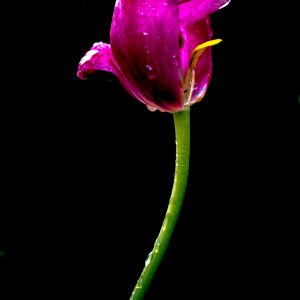I shook my head as my student ushered me into her home. “I can’t come into your house because I’m menstruating.” I explained as she started to walk into her one-room house. “It’s ok, though. I’ll sit outside.”
Khabita frowned but nodded. She brought a cup of tea out to where I was sitting on the porch and set it down beside me, careful not to touch me. Then she went back into her home.
We sat, Khabita on the inside of her house looking out and me on the porch looking in and talked as we drank our tea. Was it as strange for her to exclude me from her house as it was for me to feel left out? She fidgeted as she looked down. “Miss Katie, how can you be menstruating? You touched my brother today in class.”
I silently cursed. Like always, I had doled out high-fives when students put in effort without thinking of the menstruation rules. Lately, I had been unable to shake the feeling that I had forgotten one of the rules around menstruation. I had most of them down: no going into kitchens (or most homes), no going into temples, no salt on food, no bathing, and no getting water from the public well, but I’d forgotten that menstruating women can’t touch men.
The next day, when I arrived at school, I was greeted by the principal and several male teachers. “Katie, I was told you touched boys in class yesterday. You know you cannot touch men when you menstruate. It is not proper.”
I apologized and explained that I’d simply forgotten. It wasn’t ingrained in me the way the cultural norm is in people who grew up in a culture of menstrual seclusion.[1]
That certainly wasn’t my only experience with menstrual seclusion. My first month in my village, there was a special festival that takes place once every few years. At first, everyone was very excited to describe it to me and tell me how lucky I was to get to experience it. A few days beforehand, I pulled my host mom aside and told her I was going to be menstruating during the festival. I asked if I could sit far away from the worship area and just observe. She said it would be no problem whatsoever. The next day, my host father pulled me aside, and said “this festival is just for Nepalis.” The village was quick to uninvite me – suddenly only Nepalis could witness the festival.
Many women who live in one-room houses have to sleep outside in a menstrual hut every month, because women who are menstruating aren’t allowed to be in the kitchen/worship area, as per tradition. Because my house had multiple rooms, I did not face such a regulation. But it was the reality for many of my students. They also often missed school while menstruating, mainly because they didn’t have sanitary products.
There is a real comradery around women as a result though, I find. Menstruation is often a time for women to get a break from cooking and cleaning up after everyone – it’s a monthly vacation. Women also hang up their reusable pads on clotheslines along with the rest of their clothes – there’s no shame in displaying those garments.
[1] When I tell this story, I often get asked if I felt embarrassed about being called out like that. And the honest answer is that I don’t. At that point in my journey, I had already been embarrassed by so many things that I think I maxed out on my lifelong embarrassment quota. And I also don’t think women should feel any embarrassment about menstruation. Also, I have a theory that Fulbright Scholars (at least my friends and I) feel a lot less embarrassment than the general population – for better or worse.



